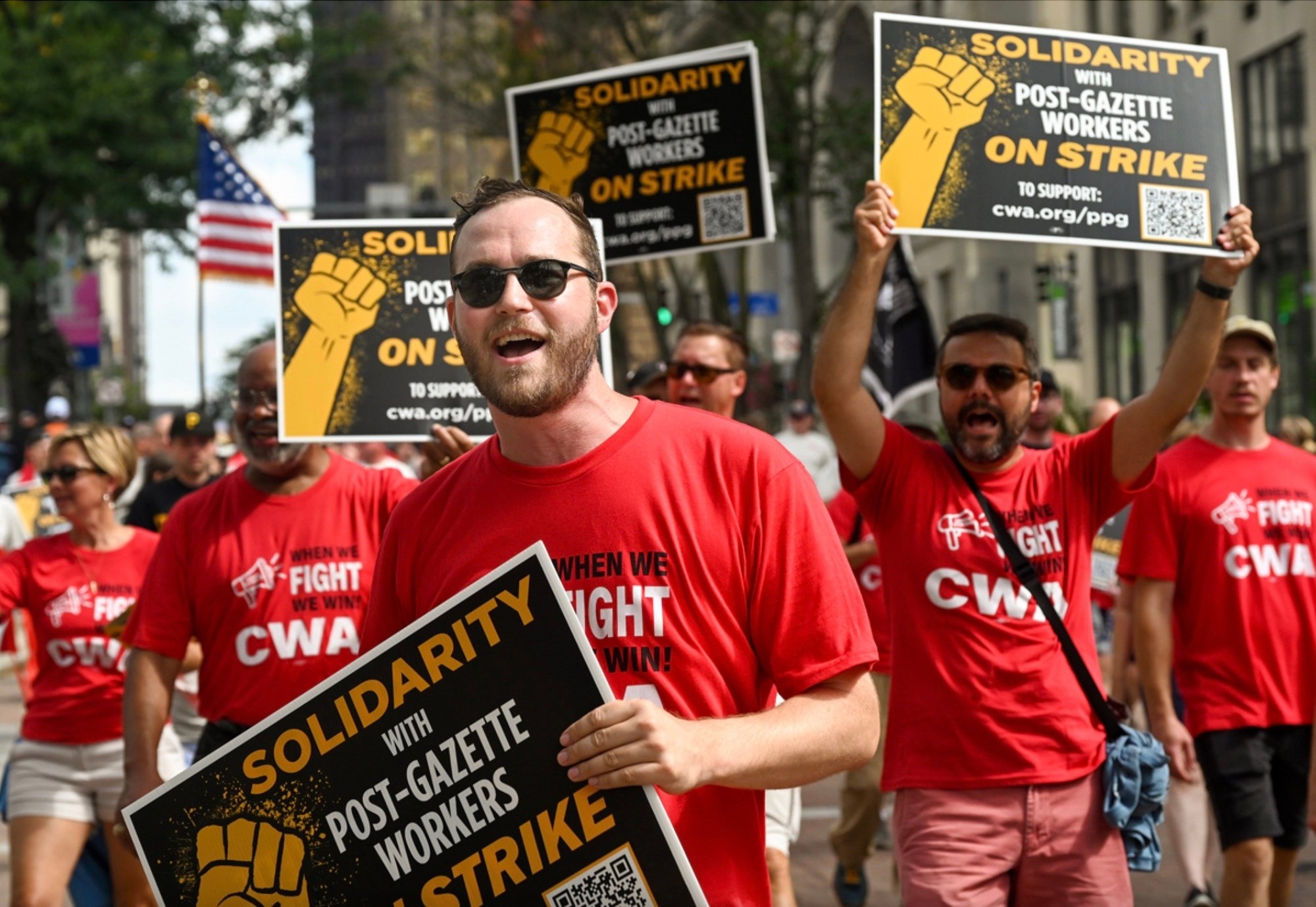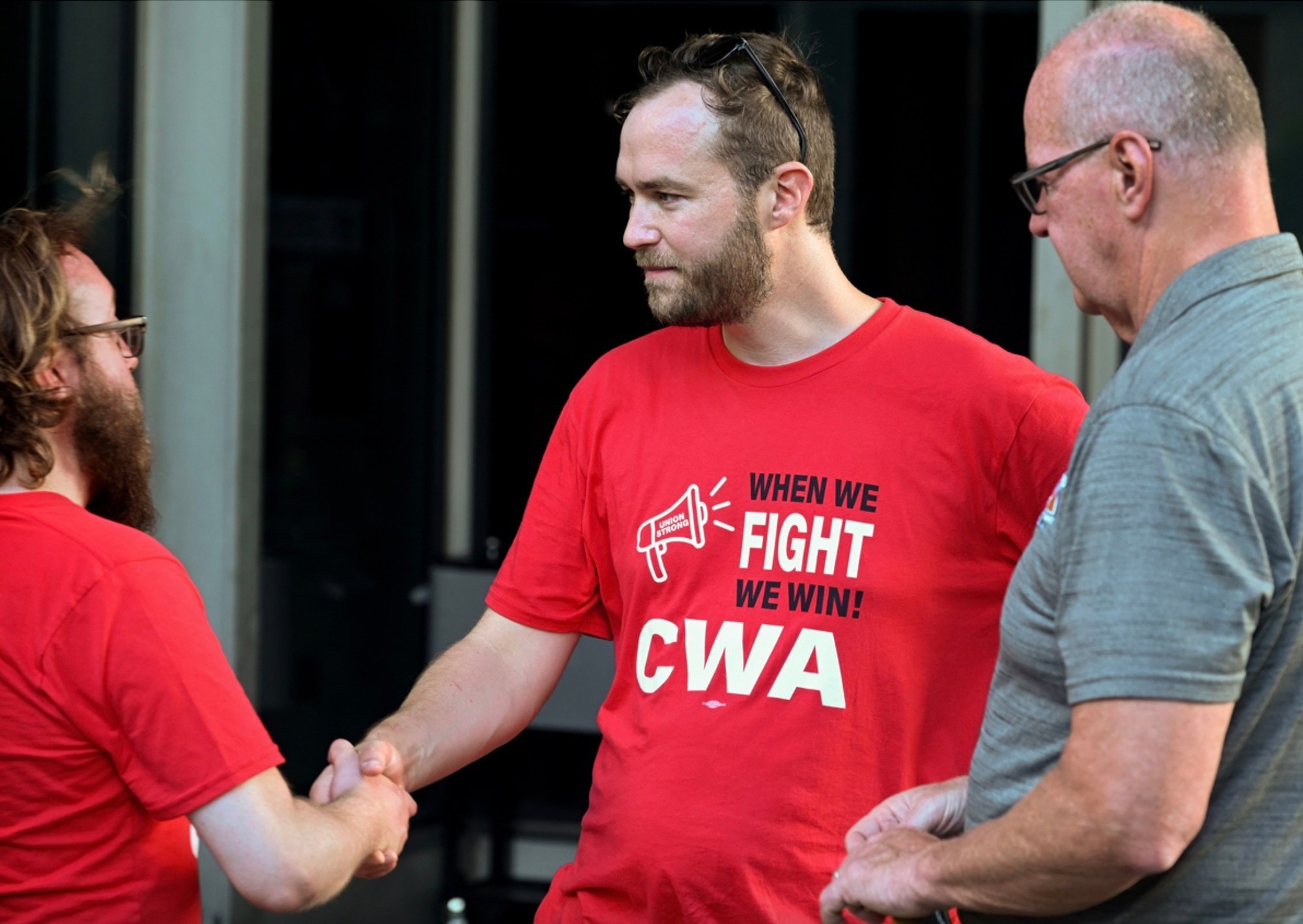What can unions do for LGBTQ+ rights?
Sep 28, 2023
8 mins
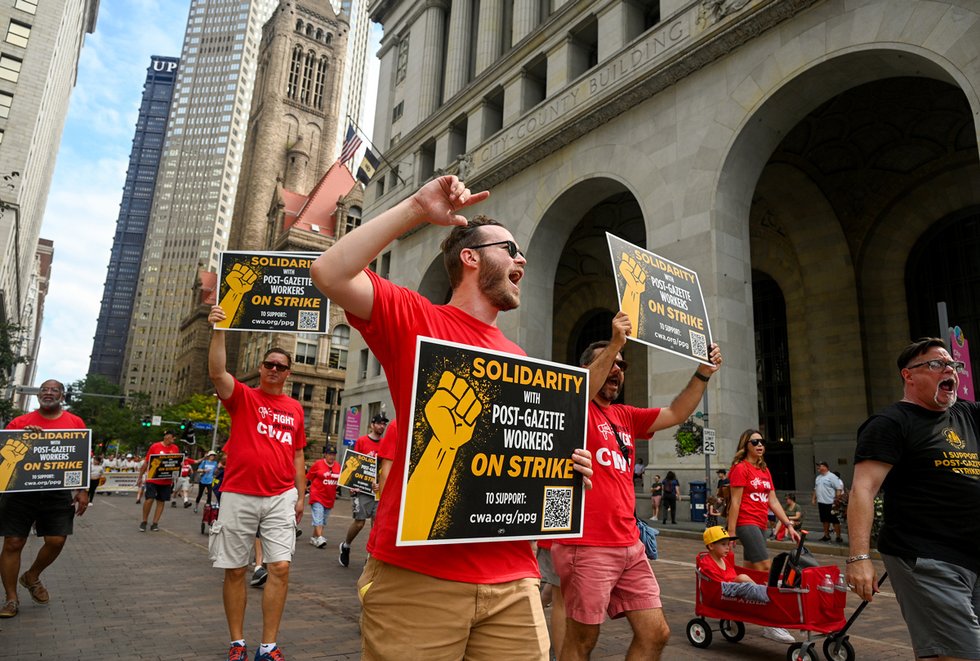

Journalist and translator based in Paris, France.
Unions are hot: from Amazon to Starbucks to the Writer’s Guild, organized labor has been making big news for the past two years. And last August, a survey by Gallup indicated that 71% of Americans approved of labor unions – a high not seen since 1965. Yet the 2022 report on union membership by the Bureau of Labor Statistics states last year’s unionization rate is the “lowest on record,” as lots of new workers in non-union jobs were added to the labor force. So despite the reports of a “union boom,” many of these organizations still need new recruits.
Some of these potential newcomers could come from the LGBTQ+ community, whose diminishing rights have grabbed headlines alongside nationwide unionization. The ACLU is currently tracking 496 anti-LGBTQ+ bills in the USA, many of which are related to work. Be it issues of transgender-inclusive health benefits or discriminatory hiring policies, some feel the battle for queer rights is intimately linked with labor activism. To understand how unions fit into queer activism, Welcome To The Jungle spoke with Jon Schleuss, president of NewsGuild-CWA, a union representing over 26,000 media and communication employees. Former journalist turned labor leader and longtime queer activist, Schleuss talks about the gay culture within unionization, the issues he’s fighting for in newsrooms, and how bargaining can represent a plethora of communities and individuals.
Can you tell me a bit about your experience at the intersection of the queer community and unions?
Back in the end of 2016 and December, the LA Times had announced that they were going to cancel our accrued paid time off and fumbled the way that they did it. It was really insulting to us that they would do this and act like it was a good thing. That sent us off on a really angry rant on our internal messaging system on Slack. And one of my colleagues, who is a gay man, said, “We should form a union.” And then I went over and talked to him and I was like, “Yeah, how do we do that? That sounds interesting to me.” And I’m a gay man. So the first few people who are working on the campaign were queer people we had in the newsroom. At one point we were like, “We need to get some more straight older white men involved because it’s just a bunch of gays who are running and building this union effort.” And we did. Of course we did.
There is, I think, a lot of interest in taking action that comes from being queer. I mean, I was part of an effort that organized a protest march, back in 2008 when the state of California had passed a pretty egregious piece of legislation removing people’s right to get married to the people that they love. Basically, queer people have already faced so much injustice and discrimination — there’s a long history of people fighting back for queer rights.
So, it became kind of natural in a lot of bargaining units that the queer workers are the ones who typically will be more active in fighting back because they understand, personally, the amounts of injustice their community has faced. So there’s this real internalized activism that exists within a lot of queer people.
Sexuality and gender seem like a personal matter, not something that would affect our work. So what are the queer issues that employees are fighting for in the workplace today?
Well, I’d say that I don’t take off my gender. I can’t change my sexuality as a worker, right? And that’s true for every single worker. And there are issues at the workplace that legitimately affect our lives that have a huge intersection with queer issues. The things that we’re fighting for are making sure that we have healthcare plans covering people who are non-binary. Making sure we have healthcare plans covering people who need medical support to transition. Making sure we’re fighting for more access to gender-neutral bathrooms.
Also, making sure that we’re pushing back against an editorial narrative that a pride march is a “protest rally” that journalists can’t be participating in. That’s something that’s happening a lot in newsrooms and it’s like, “Yeah, well, for a long time gay people were murdered and killed and they still are to this day. And this is our outlet to come together and be proud of who we are. So are you legitimately going to prevent us from attending an event with our community?” And the answer to that usually is typically, “Oh, no, I won’t.” It might not be something that is won in contract language, but it is something that we have actions around.
How can unions help resolve these issues?
For folks in the United States who work in the private sector, whether you’re in a union or not, you have the legal right to discuss your wages, your benefits and your working conditions with your colleagues, and to collectively negotiate and take actions to improve those wages, benefits and working conditions. Realizing you can use your collective as a tool to make your workplace — and the world — a better place is a really powerful concept that I think a lot of people are probably just ignorant of.
You know, I’m not the union. We have an office in Washington, D.C., but that’s not the union. The union is the decision workers make to stand collectively with their colleagues. So it can be a number of issues facing trans workers in the workplace, facing women in the workplace, facing veteran workers in the workplace. Any of those groups can come together and fight for something better. It’s a legal tool and powerful ability to beat back against the erosion of all of our benefits.
I imagine that queer employees are often minorities within their unions. So when you’re at the bargaining table, are these issues more susceptible to getting cut from deals?
I don’t know — I don’t have a quantitative view of that. What we do in the guild is try to make sure we have bargaining committees that are representative of every single group. Different genders, different races and ethnicities, different age groups, different departments. We’re constantly trying to make sure that we have a bargaining committee that looks like a representative part of the workplace.
There’s hundreds of issues that come up through bargaining, and I’ve never seen one group’s issues be pushed aside versus another group. I haven’t seen queer issues be pushed aside more than, you know, making sure all the photographers have a company car.
Are there any specific industries that could do the most union-wise for queer workers?
Yeah. I mean, my first job after I graduated high school was at a Starbucks in Little Rock, Arkansas. I loved that job. I thought it was great. But I look at Starbucks, actually, as a place that I felt safe as a young queer person. Just visiting Starbucks and likely finding another queer person who works there or was just hanging out there.
And Starbucks has changed a lot in the years since I worked there, 17 years ago. It became more of a corporation trying to extract as much money out of the business as possible, and now it’s realizing it’s not done enough to give back to the employees. So you’ve got a wave of historic unionization happening at Starbucks with another union with Workers United, which is part of the Service Employees International Union. And those are rank and file folks. A lot of them are queer. And because Starbucks typically has a lot of queer workers, I think there’s a big intersection with why we’re seeing a huge historic unionization effort happening there.
There are times in history where unions have really helped queer rights, but there’s also times when they haven’t. Have you seen or heard about any anti-gay sentiment in unions today?
Yes and no. Unions are organizations — people who come together — and we all have flaws. So I’ve got my own biases and flaws that I try to make sure I’m hyper-aware of so that I’m not affecting the thing that needs to happen, which is me bringing together resources and power for our members. I’ve definitely seen, inside our union, language or behavior that is inappropriate. And I call it out. But it’s pretty minimal. And if those people can’t be corrected and realize that they are biased or have an issue and they continue that behavior, then they need to move the f* on because that’s not helpful for our collective fight. If you’re going to discriminate against one category of workers, whether it’s women, people of color, queer people — that hurts everyone. That does not build a movement. It stops everything.
The big reason I ran for president was because I thought that our union could be better. So if you’re a person who’s just joined a union and you’re like, “I don’t like the way my union does X, Y and Z,” well, it’s a democratic organization. You can run, you can support other people who run. We’ve seen really massive changes in leadership at a lot of large unions. So if you’re upset with the way that your union runs, you have to fix it.
Do you have any examples of your union furthering queer rights?
From a journalism standpoint, we’ve also been advocating for different perspectives and stories to be told in our newsroom to make sure underrepresented communities are actually covered in our publications. There’s been a lot of conversations at The New York Times around coverage of trans people. We’ve also won gender-affirming healthcare in places like the Miami Herald and McClatchy, which is a large news chain.
Do you have any advice for like queer workers who might want to start a union but are perhaps the only queer person in the office, and don’t feel like they can rely on their coworkers?
I think that’s the case for any worker who’s going through this process. In the beginning, you feel like you’re in the minority. You feel like you’re all alone. So the biggest thing that any worker can do is start talking to their colleagues. Those are protected conversations, when you talk about your wages, benefits, working conditions. And odds are, if you’re facing it and you’re seeing it — even if you’re different from the colleague to your left or to your right — they’re facing something similar because, typically things are not felt in isolation in a workplace.
I think that a challenge for a lot of queer people is that ID issue, right? Like not every other person in the world understands or has a connection with someone who’s gay or lesbian or trans or non-binary. It’s probably more common than not that they don’t know anyone, that they don’t have any friends who identify like that. Harvey Milk told us, decades ago, that you have an obligation to tell everyone that you’re gay. Well, I think you have an obligation to tell everyone who you are fully. And when people know you as a nice person who takes care of other people, who’s a really hard worker, who cares about their community, and then they find out that you’re queer — that’s great. It potentially changes their prejudices about who those people are, because now they have someone in their life who they know is queer, who they know who’s trans. And that’s how a chain of solidarity begins. So, even if an issue is only felt by one worker in a room of 100, there are going to be a lot of other issues that the 99 other people are feeling. And if the trans worker is also pushing for women’s healthcare, that’s a sense of solidarity right there which then flows in reverse back to the trans worker who also wants coverage for gender-affirming care.
I remember, when we were ratifying our contract at the LA Times, I asked an older straight white journalist what he was most excited for. I expected him to say something about a retirement plan, or that healthcare wouldn’t increase radically. But the thing he was most excited for was that people of color and women would be more fairly paid. The thing he was most excited about was only going to help other people. But he saw it as something that was going to help him as well. And that happens when you start to bring people together.
Photo: Steve Mellon for Welcome to the Jungle
Follow Welcome to the Jungle on Facebook, LinkedIn, and Instagram to get our latest articles every day, and don’t forget to subscribe to our newsletter!

More inspiration: DEI
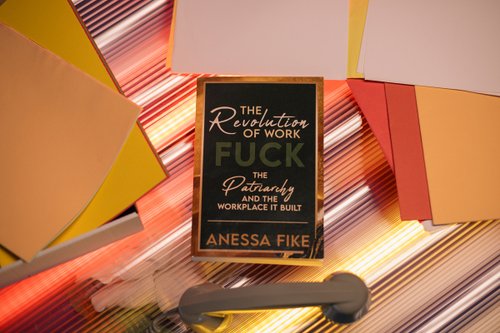
Sh*t’s broken—Here’s how we fix work for good
Built by and for a narrow few, our workplace systems are in need of a revolution.
Dec 23, 2024
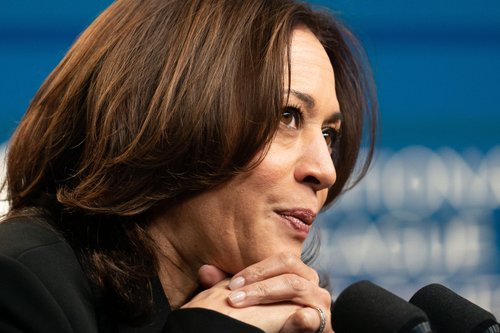
What Kamala Harris’s legacy means for the future of female leadership
The US presidential elections may not have yielded triumph, but can we still count a victory for women in leadership?
Nov 06, 2024

Leadership skills: Showing confidence at work without being labeled as arrogant
While confidence is crucial, women are frequently criticized for it, often being labeled as arrogant when they display assertiveness.
Oct 22, 2024

Pathways to success: Career resources for Indigenous job hunters
Your culture is your strength! Learn how to leverage your identity to stand out in the job market, while also building a career
Oct 14, 2024

Age does matter, at work and in the White House
What we've learned from the 2024 presidential elections about aging at work.
Sep 09, 2024
The newsletter that does the job
Want to keep up with the latest articles? Twice a week you can receive stories, jobs, and tips in your inbox.

Looking for your next job?
Over 200,000 people have found a job with Welcome to the Jungle.
Explore jobs
